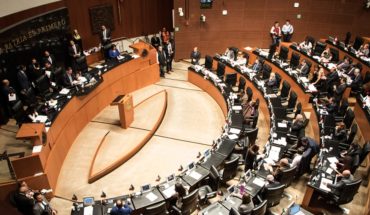
The results of the elections held on Saturday, May 15 and Sunday, May 16, 2021, set up opportunities and threats for the political management of the Constituent Body that will determine the ability of this space to build winning agreements and fulfill its purpose. The Convention may be a mere reflection of the current historical conditions or a factor in engendering a new institutionality and a new political regime, which will finally overcome Pinochet’s persistent legacy. What does it depend on whether the Convention is a symptom or a factor?
The first constraint is time. Unless it is possible to extend the operating time of the Constituent Body, the elected conventionals will have a maximum of 12 months to complete their work. Another relevant condition is the propensity of certain sectors to self-limitation and self-absorption, which has been evident in recent days with the “Spokesperson of the Peoples” and the document signed by 33 conventional constituents which expresses the intention not to subordinate themselves to the Agreement for Social Peace and the New Constitution.
The correlations of strength between political blocs, the ideological and strategic distance of the actors and the role of external strategic actors could hinder or prevent necessary agreements ranging from the discussion of the Rules of Procedure of the Convention, its internal organization, quorums of approval for the work of commissions, territorial deployment and permeability of space with respect to demands or interests of territories and external organizations.
A structural look at the Constitutional Convention identifying the quotas of seats controlled by each bloc confirms the diagnosis of fragmentation, the fall of the traditional parties and a high percentage of elected independents, which refers to two readings against the ability of the constituents to generate blockage or agreements for winning proposals.
For the first interpretative line, a high fragmentation would negatively affect the efficiency of the Constituent Body. In this perspective, fragmentation hinders the results of the work of the constituents and the search for greater convergence generates costs due to loss of legitimacy and confidence in the short term. Likewise, the tactical decisions of the constituents could produce effects in the elections next November and, even, affect the next government that will probably be the last under the institutionality of 1980.
On the contrary, a second interpretation holds that the fragmentation of the constituent body generates incentives for cooperation between different political forces, stimulating convergences, both to exercise veto and to construct winning proposals. After all, the long-term stability of the new Constitution will depend, to a large extent, on the existence of support from different political blocs. In addition, it is interesting to remember that the Chilean party system, recognized for its ability to bring about change with stability, has historically been multi-party. That is, a structurally fragmented system based on coalition presidentialism, but with a high capacity in the long term to adapt to historical conditions. Against this background, the current composition of the Convention would not be a decisive constraint, but rather an opportunity to reassess the political agreements. Otherwise, the strategic inefficiency of the constituents could, perversely, extend the validity of the current Constitution.
Whether the constituent space is a space for generating agreements and not a sounding board for polarization and social distrust will depend on the decisions taken by the different blocs of the Convention.
For the two lists that won the most seats, reaching 52 seats (veto) or 103 (winning proposals) will not be easy. We are going through Chile, being the list with the largest number of seats (37 seats), will have little sex appeal and political magnetism, unless it wants to repeat the history of the Coalition, play the political game with other people’s ideas. The second list with the largest number of seats is A aprueba Dignidad, which won 28 seats, although it requires 24 seats for the blockade, it has a greater ideological and strategic affinity with the People’s List and with certain independents that would allow it to grow, unless the anti-party discourse became hegemonic within the Convention. The old Concertación met in A aprueba, although it won 27 seats, placing itself very close to the quota controlled by I approve dignity, it constitutes, together with Vamos por Chile, the embodiment of the traditional parties, which makes it difficult to articulate with the People’s List and with a good number of independents, including those who competed in party quotas.
In this context of fragmentation and unrest, the conventional ones will have to build agreements, the main threat being to become the object of distrust in a society with a widespread anti-elite narrative and contrary to political representation. Alongside this, they will have to manage the costs of convergence and coordination with diverse actors in specific areas; they will have to keep their relationship with external strategic actors under control and will be obliged to install long-term political perspectives at a juncture where it is not commonly understood that building agreements often involves “taking one step back to take two steps forward”.
As will be seen in the coming months, drafting a new Constitution for Chile, through democratic procedures and under strong bursts of messianism and political naivety, will require elected constituents, as the old alchemists did, to seek to transform reality, previously transmuting their own beliefs and biases.
The content of this opinion column is the sole responsibility of its author, and does not necessarily reflect the editorial line or position of El Mostrador.





